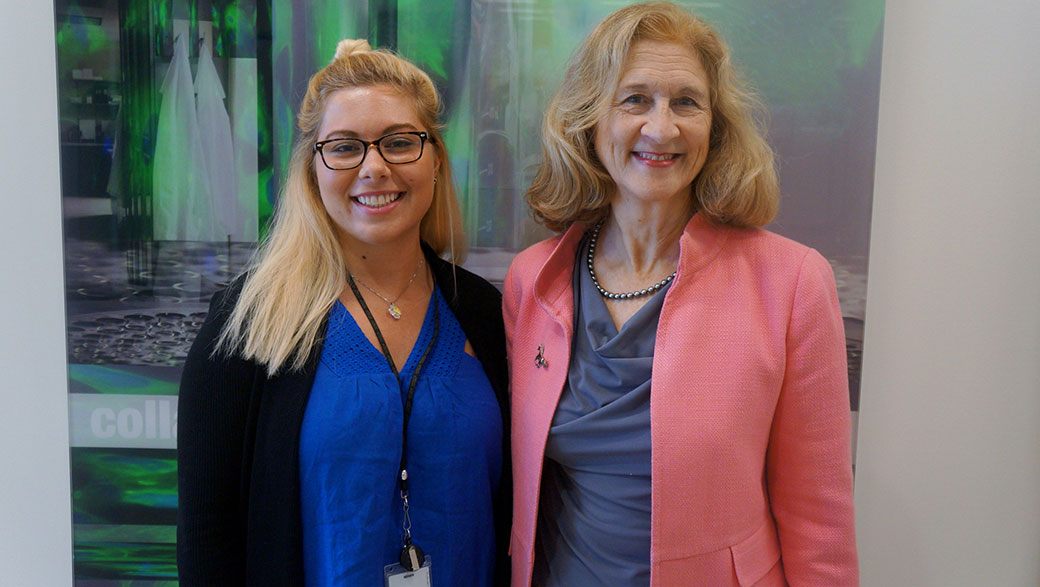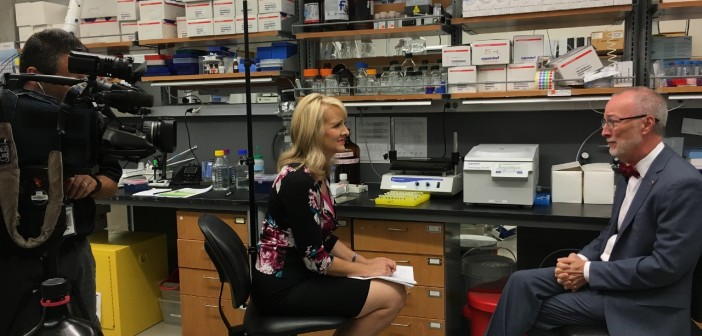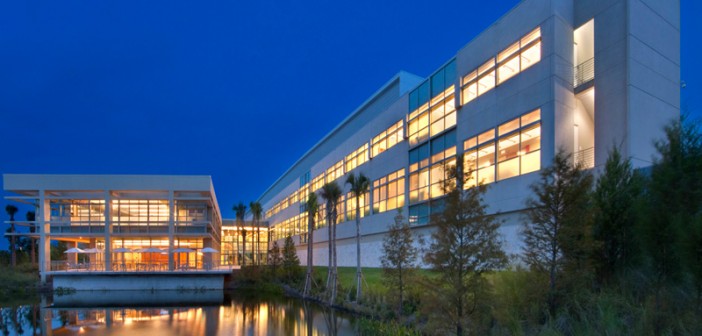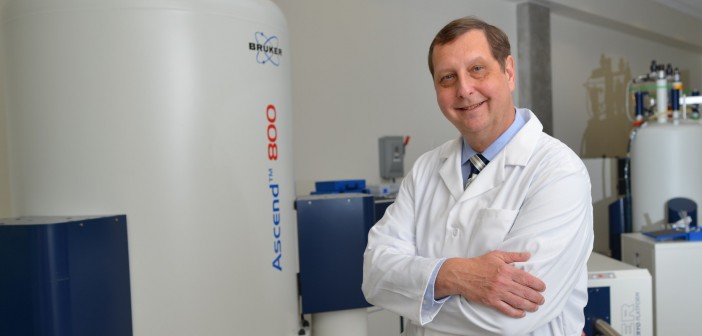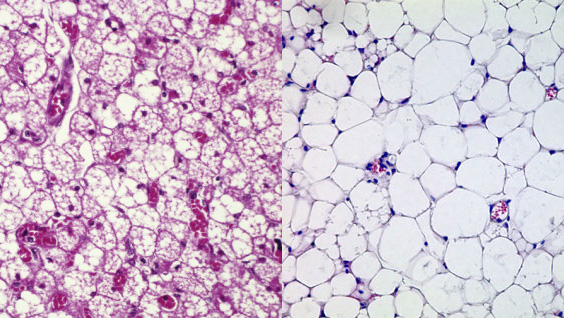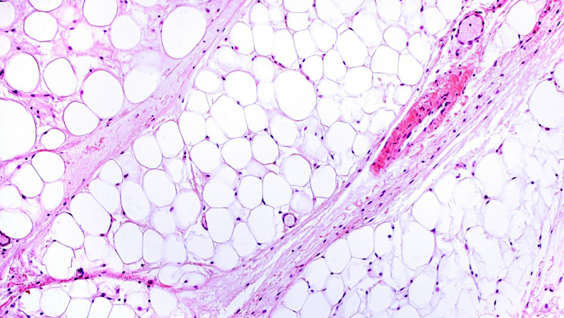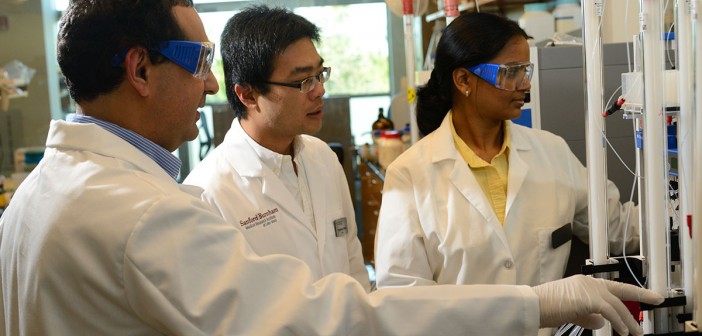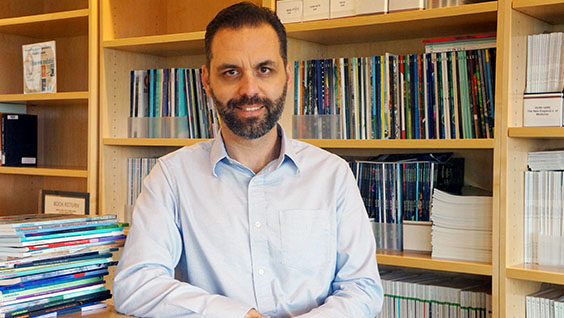Growing up, Courtney Astore was inquisitive about science and technology. So when she had the opportunity to participate in middle school science fairs, she jumped at the chance. In high school, Astore’s research in behavioral and social science, medicine and elaborate statistical algorithms led to her being a finalist at the Intel International Science and Engineering Fair three times.
Today, as an incoming sophomore at the University of Central Florida (UCF), Astore is majoring in Biotechnology with a focus on Bioinformatics. Together, with her lifelong friend Rebecca Elsishans at the University of Florida, she plans to launch a start-up company called Enasci-x that will use genetic analysis to aid in vaccine development.
Executives at UCF’s business incubator contacted Leslie Molony, PhD, senior director of Business Development for Sanford Burnham Prebys Medical Discovery Institute’s (SBP) Lake Nona campus to inquire about providing training to aspiring scientists enrolled in the National Science Foundation- iCorps™ funded LaunchPad program.
The LaunchPad program fosters entrepreneurial research designed to help the commercialization of technology. Molony guided Astore and Elsishans in the biological science and business aspects of forming a start-up for their first product-in-development called Genes4Vaccines.
Her students received guidance on a top-level list of ‘how-to’s’
- how to understand protein structures
- how to generate data that can lead to new drug discovery
- how to define new products and commercialize them
- how to develop business plans and ‘pitching’ strategies
“Courtney and Rebecca are phenomenal young women who are very eager to understand how the medical research process—vaccine discovery–can lead to commercial products,” said Molony. “They have great potential to become software service providers, or to use their talents to discover new vaccine targets that may lead to partnerships with pharmaceutical companies.”
“In terms of where we are today and how we’ve been able to map out what we need to do, we couldn’t have done any of this without Dr. Molony,” said Astore. “Her drug discovery background and business development expertise have opened our eyes to the potential of what we can accomplish, and what we need to do to get there. We know our next big steps are to finalize our minimum value product, get data validation in the lab and then attract investors.”
Big data for medical research, adds Molony, is a growing niche in the field of infectious disease where vaccine and therapy needs arise quickly and unexpectedly.
To augment her student’s training, she connected Astore with Fraydoon Rastinejad, PhD, professor in SBP’s Center for Metabolic Origins of Disease at Lake Nona who offered her a summer internship where she’ll be collecting data and analyzing human disease databases.
“Dr. Rastinejad is one of the most renowned researchers in the field, and I’m honored to have the opportunity to work with him. My internship will give me a deeper base of scientific knowledge to advance my research,” said Astore. “To work hands-on in his lab, analyzing data that recognizes patterns and clues to disease development is a dream come true.”
This post was written by Jackie Kelvington
Related:
Genes4Vaccines – UCF I-Corps
